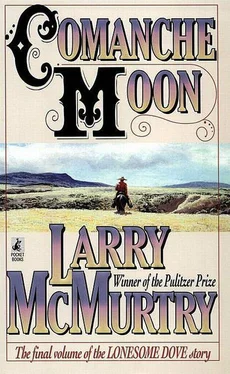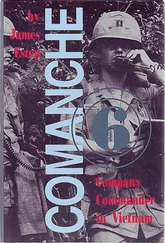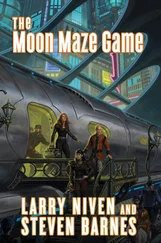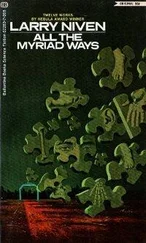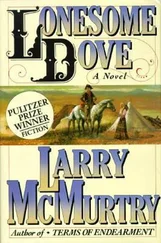Ahumado decided to shelter him and feed him well--he thought it was possible that the man might grow a new skin; but the man took no food and didn't profit much from the shade he was given.
He died after three days, without having grown any new skin.
Once or twice Ahumado had tried sticking Americans on the sharpened trees, but there again they had turned out to be disappointing captives, dying after much screaming before the sharpened tree had penetrated very far into their bowels. The Comanches and Apaches he captured on the whole did much better, although it was not unknown for one of them to disgrace himself. Once, though, he put an Apache who had stolen a woman on the sharpened tree and the Apache lived for two days even after the sharp point of the tree had come out behind his shoulder blade. No Comanche and so far no whites had done so well.
It was clear, though, that the white man Scull, the ranger, was an americano of a different order. Scull had mettle, so much mettle that Ahumado was surprised; and surprise was a thing he rarely experienced.
As for men in the cage, the best survivor had been an old Yaqui man who had been both exceptionally tough and exceptionally lucky. It had rained often while the old man was in the cage, so the man had moisture. Also, since he was a Yaqui of the hot desert, he wasn't used to eating much. In his days in the cage he cleverly peeled all the bark off the bars of his cage and ate it--the old Yaqui seemed to like the taste of dry bark better than the taste of raw bird meat. Later the blind woman Hema, the curandera, told Ahumado that the bark kept the old man from feeling hunger.
Even this Yaqui, skilled at going without food, was not as adept at living in the cage as the white man Scull. No one before Scull had ever put his legs through the cage and wiggled them.
Ahumado spent a good deal of time watching Scull through some binoculars he had taken off a dead federale. Once he even let old Goyeto look through the binoculars and Goyeto was so astonished at what he saw that he did not want to give the binoculars back to Ahumado.
He called them the Two Eyes That Made Things Large--theirthe ability to make things large left Goyeto speechless, and he was a man who usually chattered a lot. Even when Goyeto was skinning a person and the person was screaming, Goyeto would often be running on, talking about things of little interest or importance. Goyeto had always lived in the mountains, close to the Yellow Canyon. Though he was an old man he had only seen Jaguar once. Sometimes it amused Ahumado to startle Goyeto with trinkets he had stolen from the whites. Some whites carried watches that made sounds, and these sounds never failed to impress Goyeto, who thought they were magical.
Goyeto did not understand mechanical things; even guns were too complicated for him. He understood only knives--with knives he was better than anyone Ahumado had ever known.
Once Ahumado had even had Goyeto skin a great rattlesnake alive--a snake that was more than eight feet long. The reason for skinning the snake alive was that it had bitten Ahumado's favorite mare, a fleet gray filly that could outrun the Comanche horses. The snake had bitten the filly right in the nose; when the nose swelled up her air could not get through. She struggled so hard to breathe that her heart gave way.
Ahumado saw the old snake lying insolently only a few yards from where he had killed the mare. Because the old snake was insolent Ahumado caught him with a crooked stick and nailed him to the ground. Then he instructed Goyeto to skin him, and Goyeto did, turning the snake carefully until it was naked of skin.
Then, once it was skinned, Ahumado threw it into a pit of hot coals and cooked it. He did not want to turn it loose because snakes were better than humans at growing new skins. If he let the snake go it might grow a new skin and kill another filly. Some of the pistoleros were made nervous by this treatment of the snake. Many of them feared the vengeance of the snake people, and, indeed, the very next day, a pistolero was bitten when he rolled on a rattlesnake in his sleep.
But Ahumado was indifferent to such worries.
Any man should be able to watch out for snakes. He had the skin of the big snake made into a fine quirt.
After Scull had been in the cage three days Ahumado noticed that he had acquired a small tool of some kind. By watching closely with the glasses he saw that it was a small file that Tudwal had once used to sharpen things. It did not surprise Ahumado that Scull had managed to kill Tudwal, who was not a smart man; but he was curious as to what Scull meant to do with the file now that he had it. Of course he could use the file to saw through the bindings of the cage, but where would that leave him? He would either fall to his death or have to climb the rope to the top of the cliff.
Ahumado suspected that climbing was what Scull had in mind--he immediately sent ^w to the dark men to watch the rope carefully, day and night. If Scull did make it to the top of the cliff the dark men were instructed to chop off his feet with their machetes. A lack of feet would quickly put an end to his travels.
Ahumado noticed, though, that Scull did not seem to be interested in filing through the bindings, at least not in daylight. One day Scull spent the whole day scratching at the rock face with his file. It was the most puzzling thing he had done since his capture--Ahumado watched closely but could not make out the purpose of the scratching.
Scull was so absorbed by his scratching that he did not even try to catch several fat pigeons that lit on the cage while he was working. Most men, once in the cage, made desperate efforts to catch any bird that came near, fearing that they would starve if they didn't. But Scull seemed confident that he could catch birds when he needed them. Hunger didn't seem to worry him.
It occurred to Ahumado one day that Scull might be a witch. He had had that suspicion from the beginning, but the suspicion increased when Parrot appeared one day from the south and soared close to Scull's cage. Ahumado was not one who thought much about witches. He didn't believe there were very many witches--most vision people, in his view, were just charlatans, full of foolish talk.
That did not mean, though, that there were no witches at all. Ahumado believed there were only a few witches, but those few possessed powers that enabled them to do very unusual things. It was possible that the small ranger, Scull, was just such a rare thing: a witch.
Fortunately the old blind curandera, Hema, knew something about witches. Hema was a woman of the desert who knew more than anyone else about plants that could heal. Ahumado went to her and asked her what she thought Scull might be doing, scratching on the rock with Tudwal's file. Hema of course could not see Scull but she had an acquaintance with witches. Her own sister had been a famous witch who had been taken by the Apache Gomez many years before.
Hema was not a witch herself, but she was skilled with herbs and plants. She could help barren women, and old men who could no longer couple pleasantly with their wives. One woman, barren for years, had come to Hema and borne four babies, one of which was carried off by a she-wolf. She was able to brew concoctions that made the organs of aging men stiffenough again when they went to their wives.
Sometimes Ahumado talked to Hema when he needed to know about things which were beyond sight. Scull, of course, was not really beyond sight; Ahumado could see him clearly, through the binoculars he had secured by killing the federale. But the fact that Scull was scratching on the rock with a file was worrisome. Why did he scratch on the mountain?
Ahumado knew that whites could find things in the earth that others couldn't see. Sometimes they would dig into a mountain at a certain place and come out with gold. Some Indians believed that whites could make the earth shake; they might even be able to make whole mountains fall. In the war with the americanos Ahumado himself had seen the little cannons of the whites knock down a great church and several smaller buildings. When the cannonballs hit the earth they tore it up terribly. Ahumado was a child of the earth; he didn't like the way the guns of the whites could scar it and disturb it.
Читать дальше
